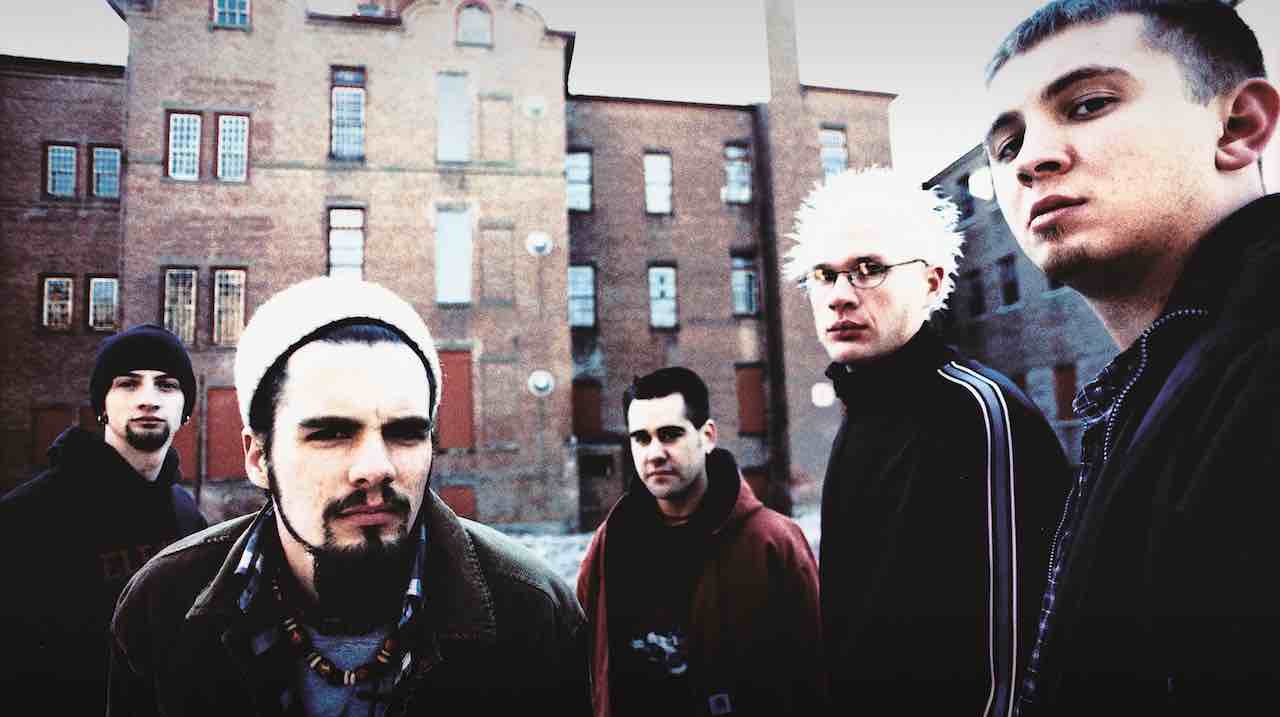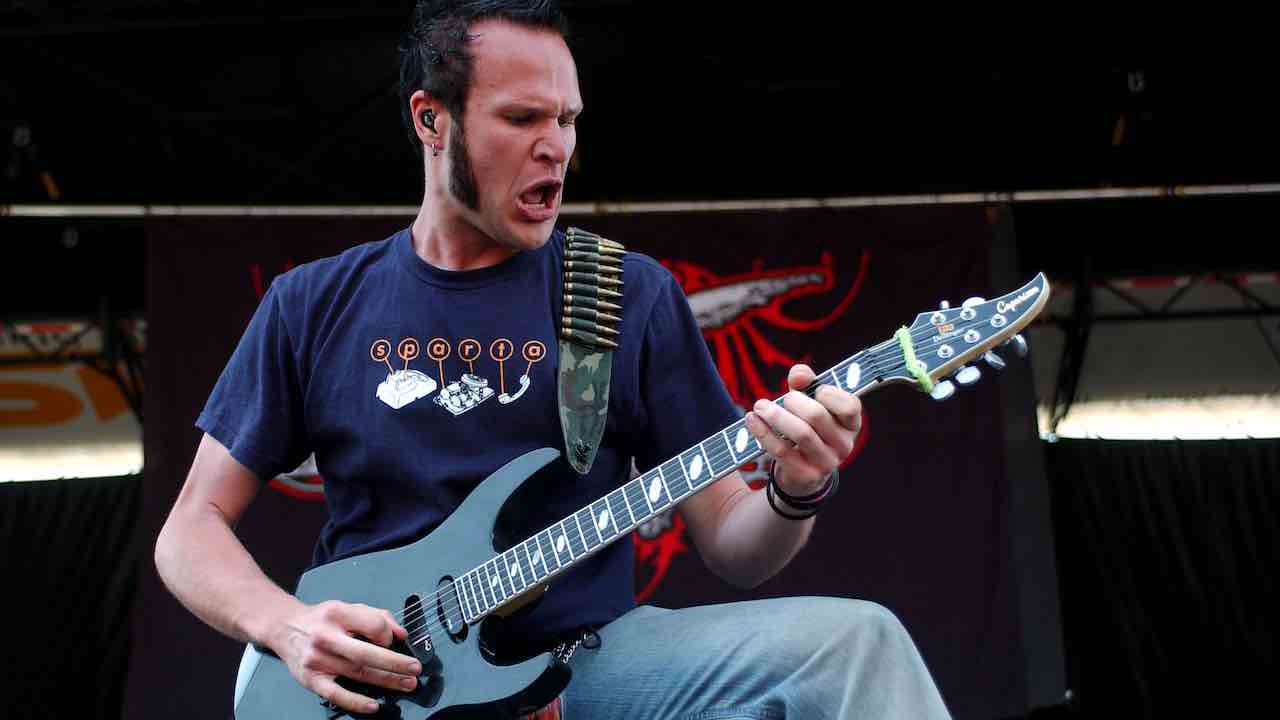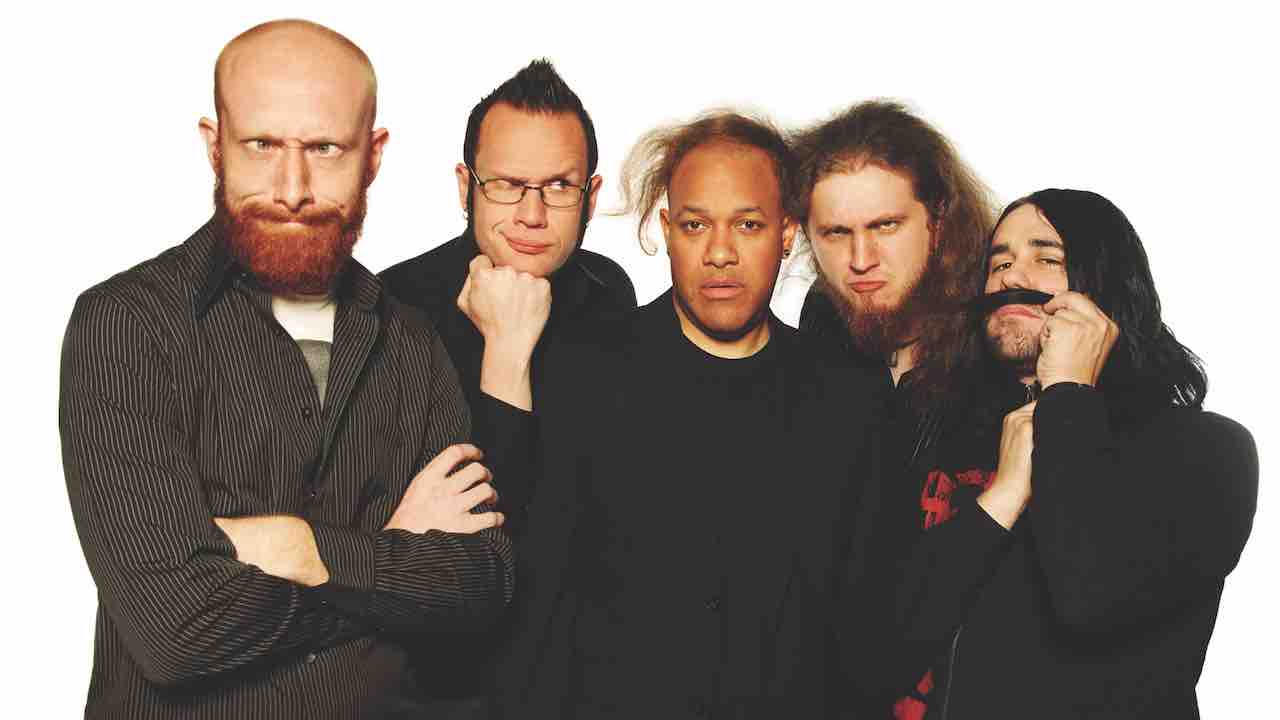Alive Or Just Breathing: how Killswitch Engage saved metal from itself
by https://www.facebook.com/metalhammer/With Alive Or Just Breathing and The End Of Heartache, Killswitch Engage buried nu metal and sparked the metalcore revolution

Although metal may have hit a commercial highpoint at the turn of the millennium, not everyone was impressed by the state of the scene. The gargantuan success of the likes of Limp Bizkit and Linkin Park alienated more traditionally-minded metal values. As an endless revolving door of chancers with wacky hair and dyed goatees, wielding seven stringed guitars and pumped full of suburban angst diluted alternative music further and further, it was clear that something needed to change.
“I remember being confused by the nu metal genre,”says Adam Dutkiewicz, guitarist with metalcore pioneers Killswitch Engage. “Not much guitar playing, silly lyrics and mouth noises, with a lack of blast beats.”
Salvation was found in an unlikely place; namely a bunch of punk kids from various satellite districts of Massachusetts. This is how Killswitch Engage and the early metalcore scene saved metal from itself.
By late 1997 Boston hardcore band Overcast, featuring future Shadows Fall frontman Brian Fair and Killswitch Engage guitarist Mike D’Antonio, had released two full length records and picked up a sizable following in the local scene. But D’Antonio was feeling frustrated by what they saw as a staunchly conservative set of values within the hardcore scene.
- Parkway Drive and Killswitch Engage: Kings Of Metalcore
- The 10 best metalcore songs
- The 20 best Avenged Sevenfold songs ever
- Hatebreed's Jamey Jasta: My Life Story
“We were a hardcore band that didn’t want to be called metal,” says D’Antonio of his time in Overcast, “but we were playing metal riffs. That was how we got our sound, we just kept pushing that envelope.”
Overcast disbanded after a two-month tour characterised by apathy and tiny audiences. “It was like a chocolate and peanut butter scene back then,” recalls Brian Fair. “Hardcore very much wanted to keep metal out of its sound. We realised it wasn’t really going anywhere.”
Despite the setback, D’Antonio hadn’t lost the bug for playing music, and approached Dutkiewicz after seeing him playing drums in local band Aftershock. Adam’s performance was so brutal that his kit was covered in blood by the end of the set, and D’Antonio was impressed enough to enquire if the drummer if he wanted to create something new.
With Dutkiewicz on drums and D’Antonio on bass, the pair added guitarist Joel Stroetzel and vocalist Jesse Leach, and Killswitch Engage were born. They took inspiration from the sound of classic hardcore, the relentless thrash of Slayer and early Metallica, and the melodic savagery of Gothenburg scene pioneers At The Gates.

After playing their first ever show alongside Swedish melo-death legends In Flames, KSE began to pick up a dedicated local following, and their self-titled debut album was released on Ferret Records. Although it didn’t come close to making a dent beyond the underground scene, the buzz surrounding was enough for bigger labels, such as Roadrunner Records, the home of Slipknot, Machine Head and more, to come sniffing around the young band. Due to their punk rock background and staunchly DIY ethics, the band were initially sceptical.
“Just being aware of how trends come and go meant that we were questioning their motives,” Jesse told Loudwire in 2016. “What’s the angle here? What are you looking to recreate? There was definitely a bit of that, but we stuck to our guns and made Alive Or Just Breathing.”
After signing to Roadrunner, Killswitch Engage entered the studio with producer Andy Sneap in late 2001 to record their second record, and walked out with one of the most significant albums of the decade. Released on February 21, 2002, Alive Or Just Breathing immediately struck a chord with disenfranchised fans of heavy music. This was partly due to a brilliant marketing campaign where the band and Roadrunner held a funeral to ‘bury’ nu-metal, complete with a coffin filled with paraphernalia such as wallet chains, a Slipknot mask, a red baseball cap and baggy trousers. But mostly it was down to Killswitch’s perfect meld of technical metallic riffs, skyscraper choruses and punk rock grit.
The band’s first single, the now-anthemic My Last Serenade, quickly became a staple of MTV’s Headbangers Ball and rock clubs the world over. Immediately the buzz regarding this hot new sound, christened metalcore, led to an interest in who else was stylistically comparable to Killswitch. Suddenly friends and contemporaries such as Shadows Fall (also formed from the ashes of Overcast and Afteshock), God Forbid, Unearth and more were being touted as metal’s next big thing.
“They were the superstar, supergroup band,” Unearth guitarist Ken Susi says on Killswitch documentary (Set This) World Ablaze. “We all just followed their lead.”
But there were problems looming for Killswitch. Their seemingly unstoppable rise was thrown off course when Jesse Leach suddenly quit the band. He announced his decision via an email to bandmate Mike D’Antonio midway through their first-ever national tour.
“After three years of hanging out with the dude, and considering him a brother, to just get an email was a little bit harsh.” the bassist told Blabbermouth.
Jesse had his own reasons. He had got married only two weeks prior to heading out on the road, and, missing his family and suffering a deterioration of his mental health, felt he could no longer continue.
“There was something wrong with my head,” Jesse told Metal Hammer in 2013. “Just sort of not being mentally prepared for life on the road. In your head, as a kid, it’s one thing but when you actually get out there it’s a whole other thing. I was having trouble with my voice and how to use it properly, I was struggling to maintain it, I wasn’t hanging out with the band because I was just so worried about conserving the voice I had, I wasn’t drinking, I just wasn’t participating in any of the fun aspects of being out on tour. Going out and seeing things, being sociable, having a few drinks, I did none of that and it just ended up driving my head into some really dark places to the point where I was apathetic to the band and apathetic to what I was doing.”
It left Killswitch Engage in a quandary. With the spotlight on them they needed to act quickly to keep the momentum that Alive Or Just Breathing had given them going. Auditions were immediately held to find Jesse’s replacement, with the band eventually hiring former Blood Has Been Shed vocalist Howard Jones. With Dutkiewicz moving to guitar to accommodate new drummer Tom Gomes, the new look KSE headed out immediately on tour around the world, alongside the likes of Soilwork, Kittie, Hypocrisy and Chimaira.
One of the landmark moments for the band was the 2002 Roadrunner Roadrage tour, alongside 36 Crazyfists and Five Point 0.

“It was our first time in Europe, so we were expecting poorly attended shows with fans that needed to be won over,” says Adam. “it went way better than expected. And Howard was still new in the band, so there was also a bit of nervousness with that.”
They need not have worried. The new singer slotted in perfectly. With Howard upfront, Killswitch were rapidly building a reputation as a world class live band.
“We gained a lot of chemistry just from being out on the road so long,” Howard told Terrorvlag when asked about how quickly he fitted into the Killswitch dynamic at that time. “We played a lot of shows in that year. And, for us, there just seemed to be this click when we got together, it seemed to work out really well.”
It certainly did. The metalcore scene they helped spark into life was growing, and Killswitch were at its head. Following up an instant classic such as Alive Or Just Breathing would have been daunting for most bands, but KSE delivered what would become the most successful album of their career, The End Of Heartache.
Released on May 11, 2004, it peaked at Number 21 in the US, while the title track was nominated for the coveted Best Metal Performance Grammy in 2005.
Much of the success of The End Of Heartache was down to the more emotionally heartfelt lyrics and soaring melodies that Jones brought to the band, particularly on songs like the title track.
“Howard’s such a great melodic singer,” Adam explains. “I think it may have given us the opportunity to introduce it into our music a bit more. We’ve always liked melody, so melodic vocals were always something that we were interested in doing.”
Suddenly the idea that you could have a hit album playing genuinely heavy, traditionally inspired metal, free of the gimmicks of the rapidly fading nu metal scene, was no longer a ridiculous idea.
“People are starting to create that thrash metal, old school sound again,” D’Antonio told musicomh.com soon after the album’s release. “I don’t want to say ‘mainstream’, but it’s definitely becoming more popular again. It’s nice to see, I’ve always been a fan of the riffing, old school, metal kind of stuff.”
With the door kicked in by Killswitch, an entire generation of bands were doing exactly that, no longer was metalcore the preserve of a small group of Massachusetts based punks. Now it was repackaged as ‘The New Wave Of American Heavy Metal’, and the likes of Lamb Of God, As I Lay Dying, Trivium and more were seeing serious returns on the groundwork that KSE laid down. And it wasn’t just in the US that this was happening. From Parkway Drive in Byron Bay, Australia to Bullet For My Valentine in Bridgend, Wales, metalcore was the dominant sound of mid-00’s metal.
“I remember being on Ozzfest with Shadows Fall, thinking ‘Wow, we’re all from the same area, grew up with each other, and here we are on one of the biggest metal festivals in the world’,” says Adam. “It was surreal.”
The influence of The End Of Heartache on the metalcore scene throughout the 00s was immense, but by the decade’s close the bands that it had inspired were as formulaic as the nu metal that Killswitch themselves had helped kill off.
“There will always be people in bands who care more about haircuts and clothing than guitar solos and blast beats,” Adam diplomatically shrugs when asked about the aftermath of their success.
In truth, even Killswitch found themselves struggling to adequately follow up their early promise. It took the departure of Jones and the band’s emotional reunion with Jesse Leach in 2012 to give the band a much-needed shot in the arm. Today, it’s hard to overstate the impact Killswitch Engage’s blend of hardcore punk and classic metal had on metal at the start of the millennium. Without it, things would sound very different.
While you’re here, why not take advantage of our brilliant new subscribers’ offer? Get a digital pay monthly subscription for as little as £1.78 per month and enjoy the world’s best high voltage music journalism delivered direct to your device.